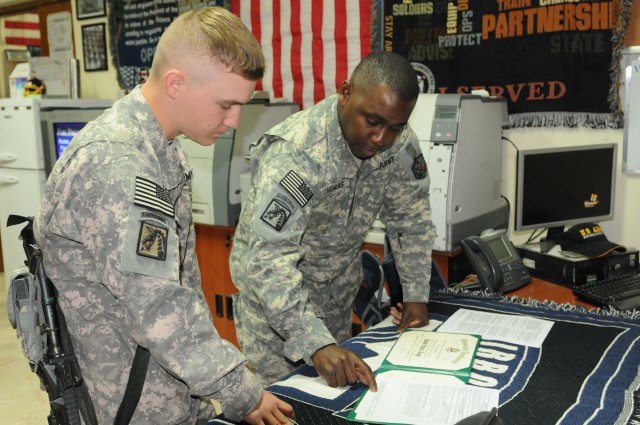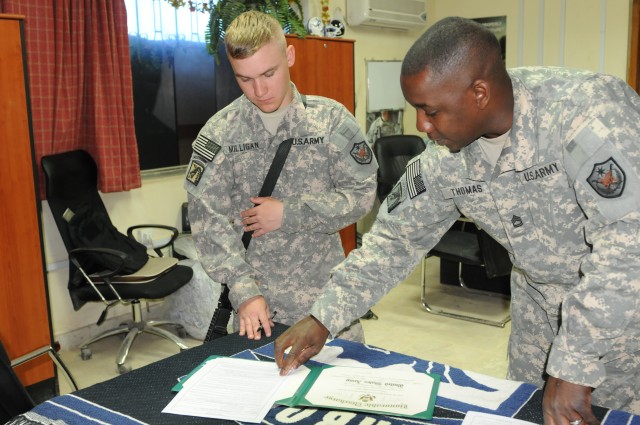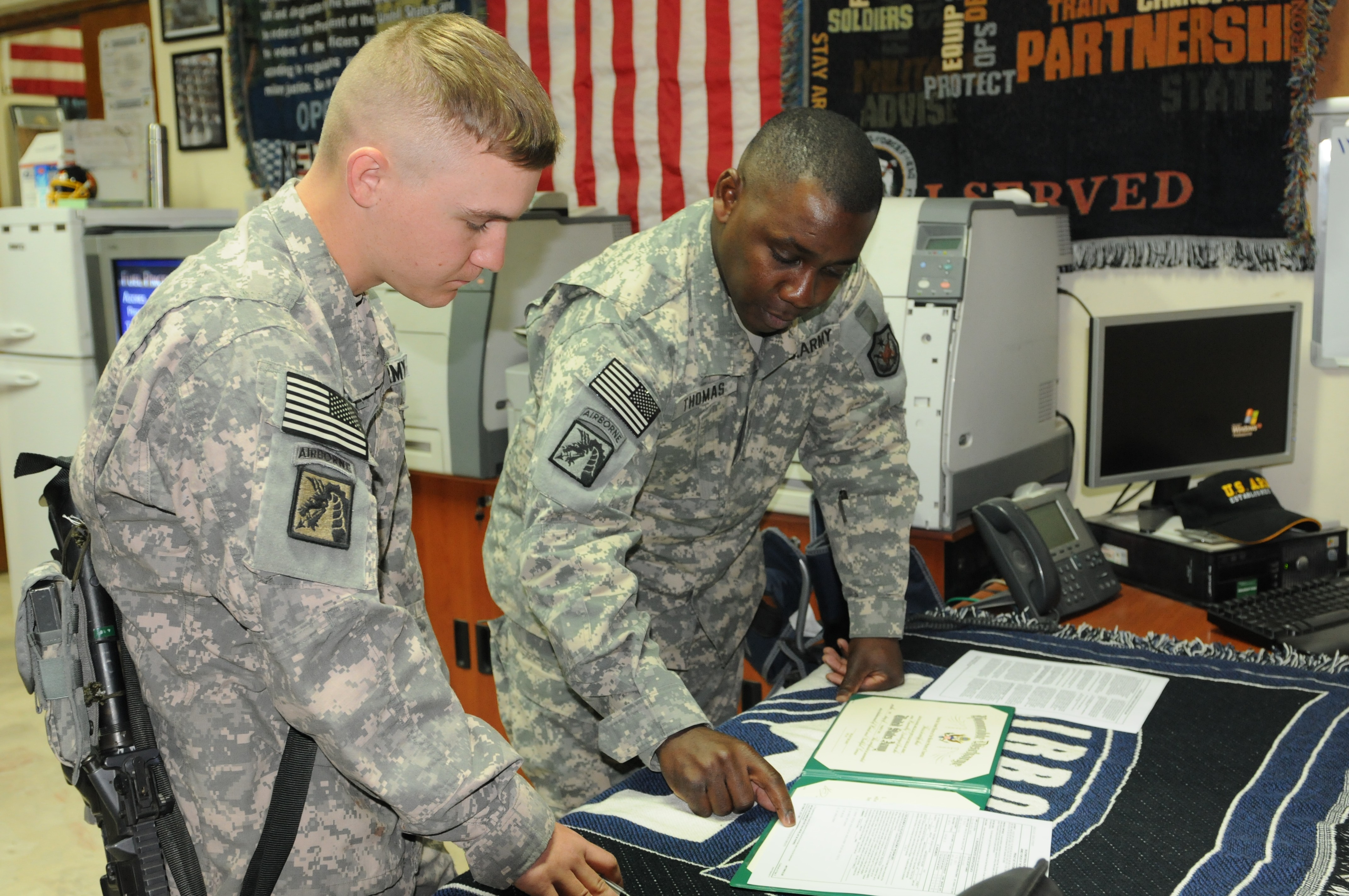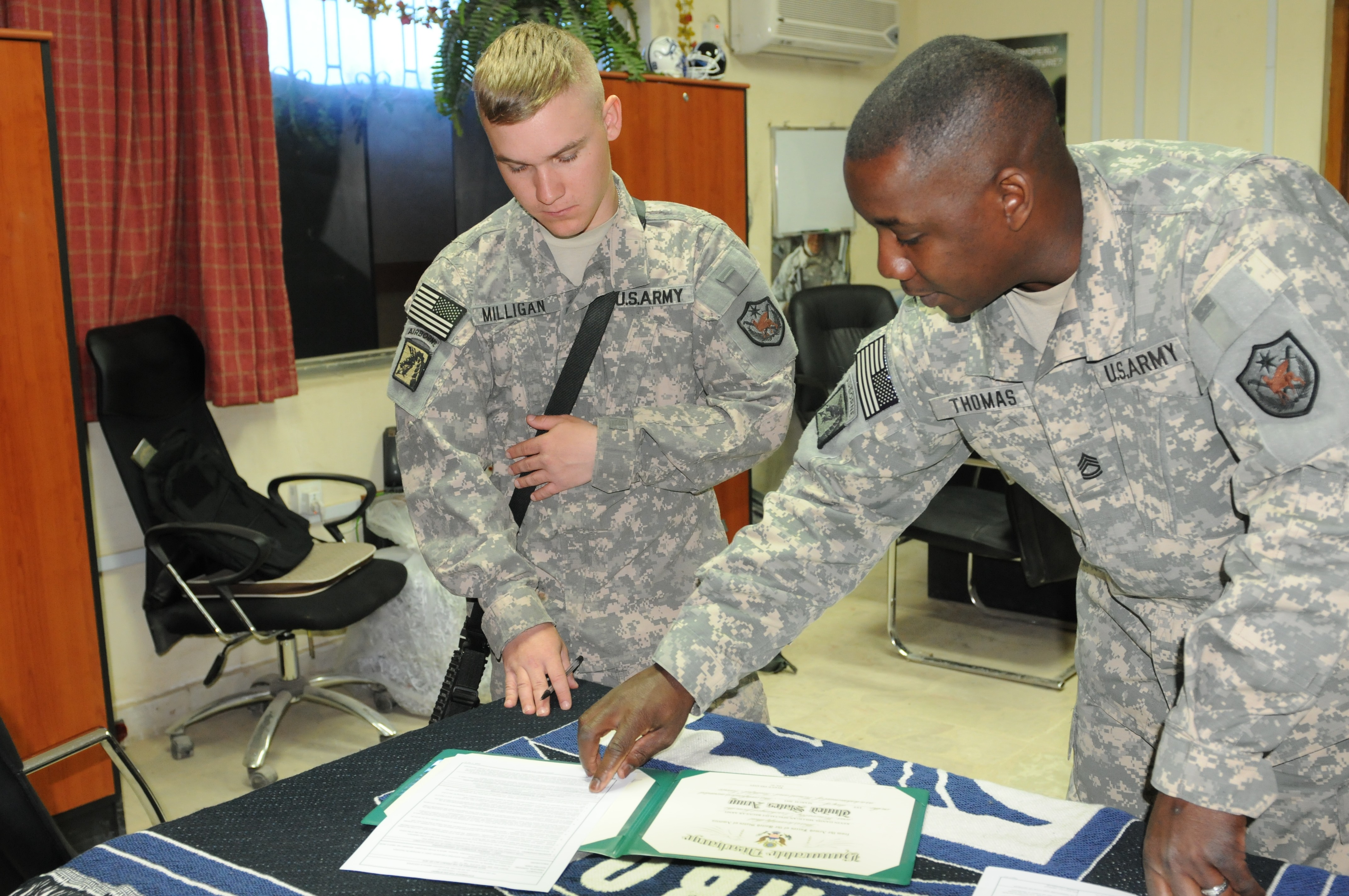Effective June 1, Soldiers serving on active duty, whether in the regular Army or Army Reserve and National Guard components, will encounter various changes within the Army Retention Control Points program.
The RCP program was designed to stabilize the Army's manpower. The new rules will significantly reduce the time staff sergeants and below can stay in service without being promoted.
This ruling, known as the "High Year of Tenure," will affect nearly 400,000 enlisted Soldiers governed by Title 10 of the U.S. Code.
"The Army is focusing on reverting back to the right size," said Sgt. 1st Class Kevin Thomas, a career counselor with USF-I retention office. "This is a process in which the Army emphasizes the alignment of forces to sustain its needs."
"We are moving from a building-a-force mentality to shaping-a-force mentality," said Sgt. 1st Class Anthony Anderson an Army Reserve career counselor with the Army Reserve Affairs Division.
Official Army guidance was released on Jan. 28, directing new changes to the RCP program. These changes only affect Soldiers in the ranks of private to staff sergeant. Privates through privates first class can retain enlistment for up to eight years. Specialists and corporals are allowed 12 years, while promotable specialists and corporals can stay in for up to 15 years. Sergeants are allowed 15 years, promotable sergeants, 20 years, and staff sergeants are authorized 23 years.
Every Soldier must meet and maintain the standards set by the Army. They must progress as fast as the Army progresses, Thomas said.
"We want to keep the best Soldiers in the Army," Thomas said. "The memorandum is released as an eye-opener for Soldiers to push harder for progression and achieving success."
"It is a drive for Soldiers to reenlist and will also force them to work harder towards progression in the Army," said Sgt. Maj. Mark Mayo, the USF-I command group career counselor.
Active-duty Soldiers who are subject to separation because of the RCP change are provided other opportunities to continue their military career, such as serving in the Army Reserve or Army National Guard.
"Take a good hard look at yourself and ask if you have done everything you need to change," Mayo said. "If you want to stay in the Army, you have to advance."
Career counselors on Victory Base Complex highly encourage Soldiers to utilize their services for assistance towards career progression and reenlistment information.
"We are here for the Soldiers," Thomas said. "The assistance and services are readily available for them."




Social Sharing